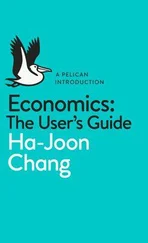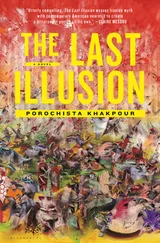Bruce Hood - The Self Illusion
Здесь есть возможность читать онлайн «Bruce Hood - The Self Illusion» весь текст электронной книги совершенно бесплатно (целиком полную версию без сокращений). В некоторых случаях можно слушать аудио, скачать через торрент в формате fb2 и присутствует краткое содержание. ISBN: , Издательство: Constable & Robinson, Жанр: Старинная литература, на английском языке. Описание произведения, (предисловие) а так же отзывы посетителей доступны на портале библиотеки ЛибКат.
- Название:The Self Illusion
- Автор:
- Издательство:Constable & Robinson
- Жанр:
- Год:неизвестен
- ISBN:9781780331379
- Рейтинг книги:5 / 5. Голосов: 1
-
Избранное:Добавить в избранное
- Отзывы:
-
Ваша оценка:
- 100
- 1
- 2
- 3
- 4
- 5
The Self Illusion: краткое содержание, описание и аннотация
Предлагаем к чтению аннотацию, описание, краткое содержание или предисловие (зависит от того, что написал сам автор книги «The Self Illusion»). Если вы не нашли необходимую информацию о книге — напишите в комментариях, мы постараемся отыскать её.
The Self Illusion — читать онлайн бесплатно полную книгу (весь текст) целиком
Ниже представлен текст книги, разбитый по страницам. Система сохранения места последней прочитанной страницы, позволяет с удобством читать онлайн бесплатно книгу «The Self Illusion», без необходимости каждый раз заново искать на чём Вы остановились. Поставьте закладку, и сможете в любой момент перейти на страницу, на которой закончили чтение.
Интервал:
Закладка:
Sometimes the ability to see certain patterns is lost. Animals raised in environments without straight lines end up not being able to see straight. In short, early deprivation studies reveal that the punishment fits the crime. 23If you remove some experience during early development, it has long-term effects later in life. Children raised with faulty vision grow up with permanent visual loss known as amblyopia. Amblyopia is not a problem of the eyes but of the brain regions that produce vision. That’s why putting glasses on someone with amblyopia late in life makes no difference. It’s also why amblyopes cannot fully appreciate 3D movies because they have lost stereovision, which needs good input from both eyes early on in life. If you want to make a difference, you have to correct the problem when it first arises so that the developing connections in the brain are not permanently ruined. 24This leads on to discussion of another fundamental principle of brain development – sensitive periods.
Windows of Opportunity
Timing is everything, be it golf, sex or comedy. This turns out to be true for many basic aspects of brain development when input from the environment is required. Our brains have evolved to be malleable through experience but some experiences are required and expected at certain times during our lifetime. As noted above, deprivation can lead to permanent problems in later life but it turns out that these effects are most pronounced at certain times. Once the connections have been pruned due to inactivity, it is increasingly difficult to re-establish communication between the relevant parts of the brain. The window of opportunity has slammed shut.
These episodes of time-limited brain development are sometimes called ‘critical periods’ because no amount of remedial exposure after the window of opportunity has passed can reinstate the lost function. In truth, ‘sensitive period’ is probably more accurate as the brain has a remarkable capacity to recover, although it is worth noting that sensitive periods apply only to some of our human abilities and not others. Natural selection has evolved brains to expect certain experiences at certain times in development. 25Why would nature hedge her bets that way? Surely blank slates are the best solution for uncertain worlds.
The reason is quite simple: like any successful manufacturer, nature always seems optimized to cut the cost of production. Nature prefers to build machines that are tailored to work without being over-specialized. For example, there is no point building an all-purpose machine when some purposes are unlikely or redundant – that would be too costly. It is much better and more efficient to anticipate the most likely world rather than having the machine specified in advance. This is how evolution selects for the best fit. Those with systems that are not optimized for their environment are not as efficient and will eventually lose the race to reproduce. This explains why babies’ brains are pre-wired loosely to expect certain worlds they have not yet encountered and then become streamlined and matched to their own world through experience.
Although the modern world appears complex and confusing, the basic building blocks of how we see it are fairly predictable and unchanging from one generation to the next. Experience simply fine-tunes the system. However, if you remove the experience during the critical time when it is expected, then this creates permanent problems. One of the first demonstrations of critical period loss comes from the Nobel Prize-winning work of Konrad Lorenz who showed that newborn goslings would follow the first moving thing they saw – even if that happened to be an elderly Austrian bird expert. 26The early films of Lorenz show this bearded gent walking around smoking his pipe, being loyally followed by a line of goslings. Their bird-brains were equipped with a built-in mechanism to imprint on, and follow, the first big moving thing, whatever or whoever that was. For many animals, nature has produced a similar strategy to get them up and running as fast possible and to follow the important others in their gang. In the case of geese (and many other birds), nature gambled that the first moving thing was usually Old Mother Goose so there was no need to be too discerning. Austrian ornithologists would do fine. However, if the goslings were raised so that they did not see any large moving thing at all for the first ten days, then they did not later imprint because the window of opportunity had passed. In their natural state with no one to follow, these goslings would have perished, as their mother moved on.
Humans are more complicated than birds and our period of growth and nurturing is the longest in the animal kingdom, so there is less pressure to adapt as quickly. Nevertheless, there does appear to be evidence that we too have windows of opportunity and are preconfigured to attend to certain information from the environment. For example, human language development is usually trumpeted as one of the best examples of a brain-based ability that is both uniquely human and biologically anchored. In The Language Instinct , 27Steven Pinker points out that just about every child, irrespective of where they are raised, learns to speak a language almost effortlessly at roughly the same time, whereas their pet hamster raised in the same household does not. It doesn’t matter how much you talk to your pet, you won’t get them answering you back. The only sensible explanation for this is that the human brain is pre-programmed to learn a language, whereas pet hamsters’ brains are not. Any infant raised in any environment can learn the language to which they are exposed. This proves that there is a built-in, uniquely human capacity to learn language, which must be genetically encoded, but that the actual language acquired is determined by the environment.
The human baby’s remarkable ability effortlessly to acquire language is only one line of evidence for the biological basis of language. Have you ever noticed how difficult it is to learn a second language the older you get? For example, I do not seem to be readily able to learn a foreign language and it is not through lack of trying. Despite hours of effort with Linguaphone learning tapes, I am unable to break the British stereotype of only being able to speak English. This is because the plasticity in the neural circuits in my brain that support language learning has been progressively lost. Some of us do not have such a problem but it may be related to whether we were exposed to other languages at a young enough age. This is one of the reasons that foreign-language learning is much easier before the age of seven. For example, when Korean immigrants to the United States were tested on their ability to learn English, individuals had no problem if they arrived before they were seven. For older immigrants, it became increasingly hard for them to learn English, even though they attended night classes and were highly motivated to learn. 28This indicates there are biological limits to learning languages.
For many, just hearing the difference between languages becomes hard. In a classic study, Canadian infant researcher Janet Werker demonstrated that all babies could hear the different sound structures that exist in spoken Inuit and English languages before the age of ten months. However, the longer they were immersed in their own language environment, the more difficult it was for them to hear differences in the structure of other languages. 29As we age, we lose the ability to detect the subtle differences between spoken languages. The best explanation is that our brains are tuning into the experience from our environments and losing the ability to process experiences that we do not encounter. Our brains are becoming less plastic for language learning. This is why, for Japanese speakers, English words that have ‘l’ and ‘r’ sounds are often confused, which can lead to comical miscommunication. Pinker wrote about his visit to Japan where he described how the Japanese linguist Masaaki Yamanashi greeted him with a twinkle in his eye when he said, ‘In Japan, we have been very interested in Clinton’s erection .’ This was several years before the US President would face impeachment in 1998 due to the Monica Lewinsky scandal.
Читать дальшеИнтервал:
Закладка:
Похожие книги на «The Self Illusion»
Представляем Вашему вниманию похожие книги на «The Self Illusion» списком для выбора. Мы отобрали схожую по названию и смыслу литературу в надежде предоставить читателям больше вариантов отыскать новые, интересные, ещё непрочитанные произведения.
Обсуждение, отзывы о книге «The Self Illusion» и просто собственные мнения читателей. Оставьте ваши комментарии, напишите, что Вы думаете о произведении, его смысле или главных героях. Укажите что конкретно понравилось, а что нет, и почему Вы так считаете.












